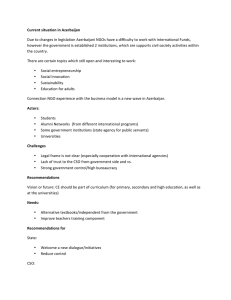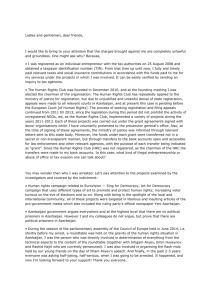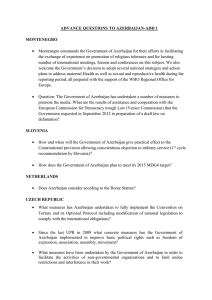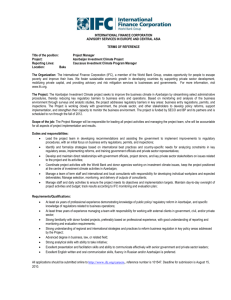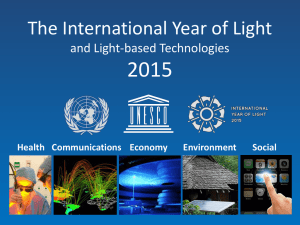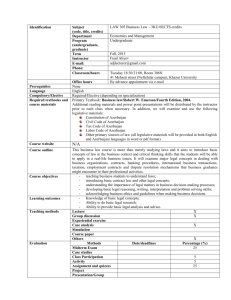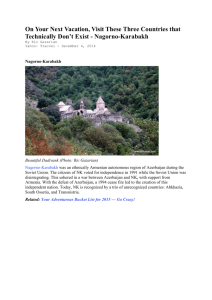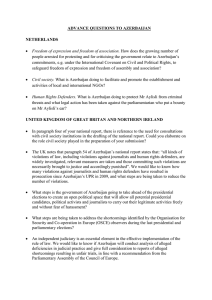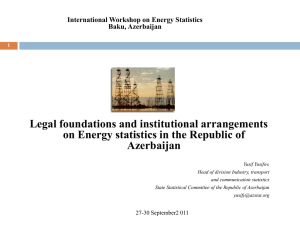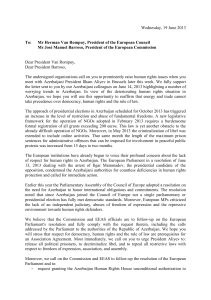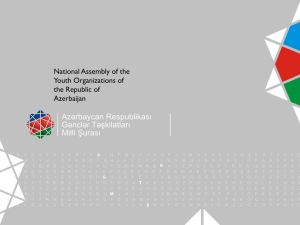intervention by azerbaijan
advertisement
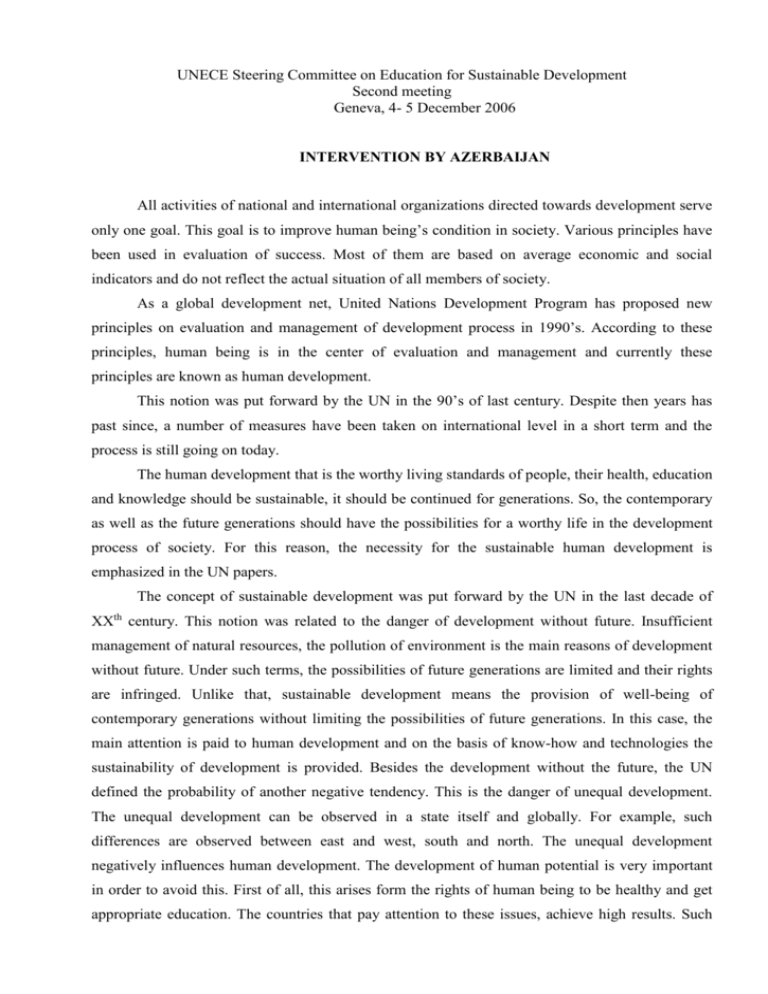
UNECE Steering Committee on Education for Sustainable Development Second meeting Geneva, 4- 5 December 2006 INTERVENTION BY AZERBAIJAN All activities of national and international organizations directed towards development serve only one goal. This goal is to improve human being’s condition in society. Various principles have been used in evaluation of success. Most of them are based on average economic and social indicators and do not reflect the actual situation of all members of society. As a global development net, United Nations Development Program has proposed new principles on evaluation and management of development process in 1990’s. According to these principles, human being is in the center of evaluation and management and currently these principles are known as human development. This notion was put forward by the UN in the 90’s of last century. Despite then years has past since, a number of measures have been taken on international level in a short term and the process is still going on today. The human development that is the worthy living standards of people, their health, education and knowledge should be sustainable, it should be continued for generations. So, the contemporary as well as the future generations should have the possibilities for a worthy life in the development process of society. For this reason, the necessity for the sustainable human development is emphasized in the UN papers. The concept of sustainable development was put forward by the UN in the last decade of XXth century. This notion was related to the danger of development without future. Insufficient management of natural resources, the pollution of environment is the main reasons of development without future. Under such terms, the possibilities of future generations are limited and their rights are infringed. Unlike that, sustainable development means the provision of well-being of contemporary generations without limiting the possibilities of future generations. In this case, the main attention is paid to human development and on the basis of know-how and technologies the sustainability of development is provided. Besides the development without the future, the UN defined the probability of another negative tendency. This is the danger of unequal development. The unequal development can be observed in a state itself and globally. For example, such differences are observed between east and west, south and north. The unequal development negatively influences human development. The development of human potential is very important in order to avoid this. First of all, this arises form the rights of human being to be healthy and get appropriate education. The countries that pay attention to these issues, achieve high results. Such countries are guided by the science and technology in the issue of human development. For this reason, the country undergoes high competition and provides high development of its population. The process of human development in the Republic of Azerbaijan may be divided into 3 stages. During 1991-95, the index of human development decreased. During 1993-94, the actions taken for the economic and social development enabled to resist this tendency. As a result of the cooperation of state with international organizations, most notably with the UN, the coefficient of human development started to increase since 1996. The priorities of a sustainable human development became the part of state policy. The sustainability of this process is the inclusion of the courses of human development in the education program of secondary and vocational education centers. Different decrees and decisions issued in the state reflect consistent policy in the filed of a sustainable human development. In the first stage, there was a necessity to identify the modern national terminology on human development. In order to acquaint the professional society with this issue in Azerbaijan, in 1995-96 a special enlightenment campaign was held. The workshops and the discussions organized by the UNDP with the government and NGO’s had an important role in the dissemination of the information on human development. The representatives of scientific bodies, education centers, media and business sectors were involved to these workshops. This stage created a basis to enlarge the activity in the field of a sustainable human development in the future. In the second stage, the course of human development was taught in the selected high education centers. Later, considering the importance of the dissemination of knowledge on the new development principles, the Ministry of Education of the Republic of Azerbaijan started the training of elective course of “human development” within the project prepared together with the UNDP for the pupils of 10th class in the secondary schools within the pilot project. More than 150 000 pupils of 10th class, 4500 teachers of secondary schools, around 1000 students and 50 university teachers were involved to this process financed by the government of Azerbaijan. The objective of this experience was to form the public values, the relations between the individual and society, and new world view. As a result of this measure, as well as the state policy, a human development index of the Republic of Azerbaijan increased. The teachers and the pupils of the educational centers understood the importance of sustainable development and started to consider it in their lives and activities. The priorities of a sustainable human development were also identified and implemented. During the measure, some problems and deficits were discovered. The deficit of professionals and literature in Azeri language could be stated as examples. In general, the initiative was successful. On the basis of project success, the course of human development was included into the training process as the elective course of all schools in the country. At present, this subject is taught as the elective course in the secondary schools. The training manual proposed for the secondary schools is one of the best in the world. The human development became the part of general education. In the third stage, human development and sustainable development became the state policy. Human development in our country became an important part of state policy. This is reflected in decrees of the President and the reforms held in the country and is highly appreciated by the international organizations.
